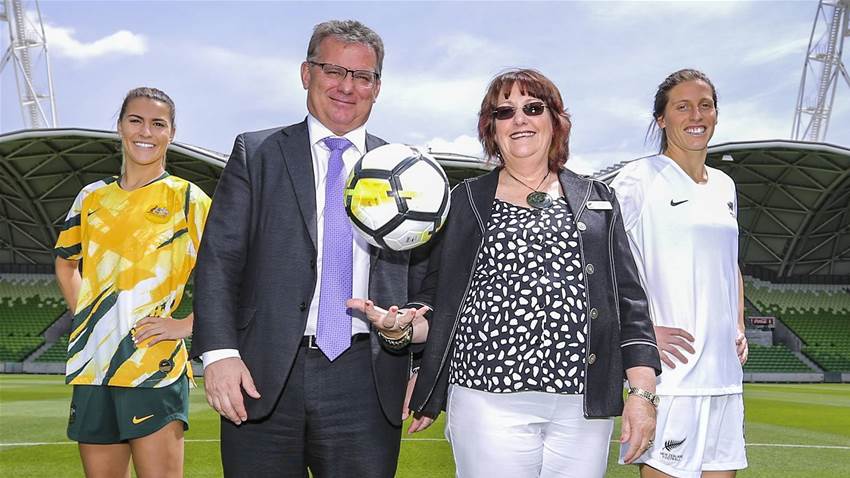FFA Chairman Chris Nikou believes the legacy that a Women’s World Cup in Australia and New Zealand would leave on South East Asia and the Pacific has the trans-Tasman bid well placed in the race to win the rights to stage the tournament.
Australia and New Zealand’s quest to host the 2023 tournament – which will be the first to have 32 nations competing – received a boost this week when hosting rivals Brazil suspended their push to host the footballing showcase.
In a statement posted on their federation’s website, the Brazilian bid cited a “combination of factors” that would prevent the nation from hosting the tournament - chief amongst them the financial ramifications that the COVID-19 pandemic has had for the South American nation’s finances.
Brazil’s withdrawal ahead of the June 25 vote leaves Australia and New Zealand’s joint bid as one of just three still standing, up against Japan and Colombia – now supported by CBF.
“On pure numbers, it’s good, because we’re now down to three,” FFA Chairman Chris Nikou told FTBL of Brazil’s withdrawal.
“There are three good bids left but we think there are some really good features about the joint bid; from our ability to put on events, to looking after players and fans, we think we’ve got a pretty compelling bid.
“Being one of three is good but being first past the post on the 25th is most important.”
Though their bid itself wasn’t expected to present a serious impediment to the chances of the “As One” bid, Brazil’s move to suspend their bid has created a new wrinkle in proceedings; the Colombian campaign is now likely count on the full support of South America's contingent on the 35-strong FIFA Executive Council which will award hosting rights.
Nonetheless, the Australian and New Zealand bid received an even greater boost in their push to secure the backing of the non-South American members of that committee on Wednesday evening with the release of the evaluation reports conducted by FIFA assessing the quality of the bids.
The joint bid, it was noted, was the "most commercially favourable proposition" of the remaining three and it was observed that it was clearly capable of filling one of FIFA's key demands of serving as a catalyst for the growth of women's football throughout the Asia Pacific.
Related Articles

New Zealand's apathy towards the Women's World Cup is embarrassing
.jpg&h=172&w=306&c=1&s=1)
Socceroos great Attilla Abonyi is mourned













